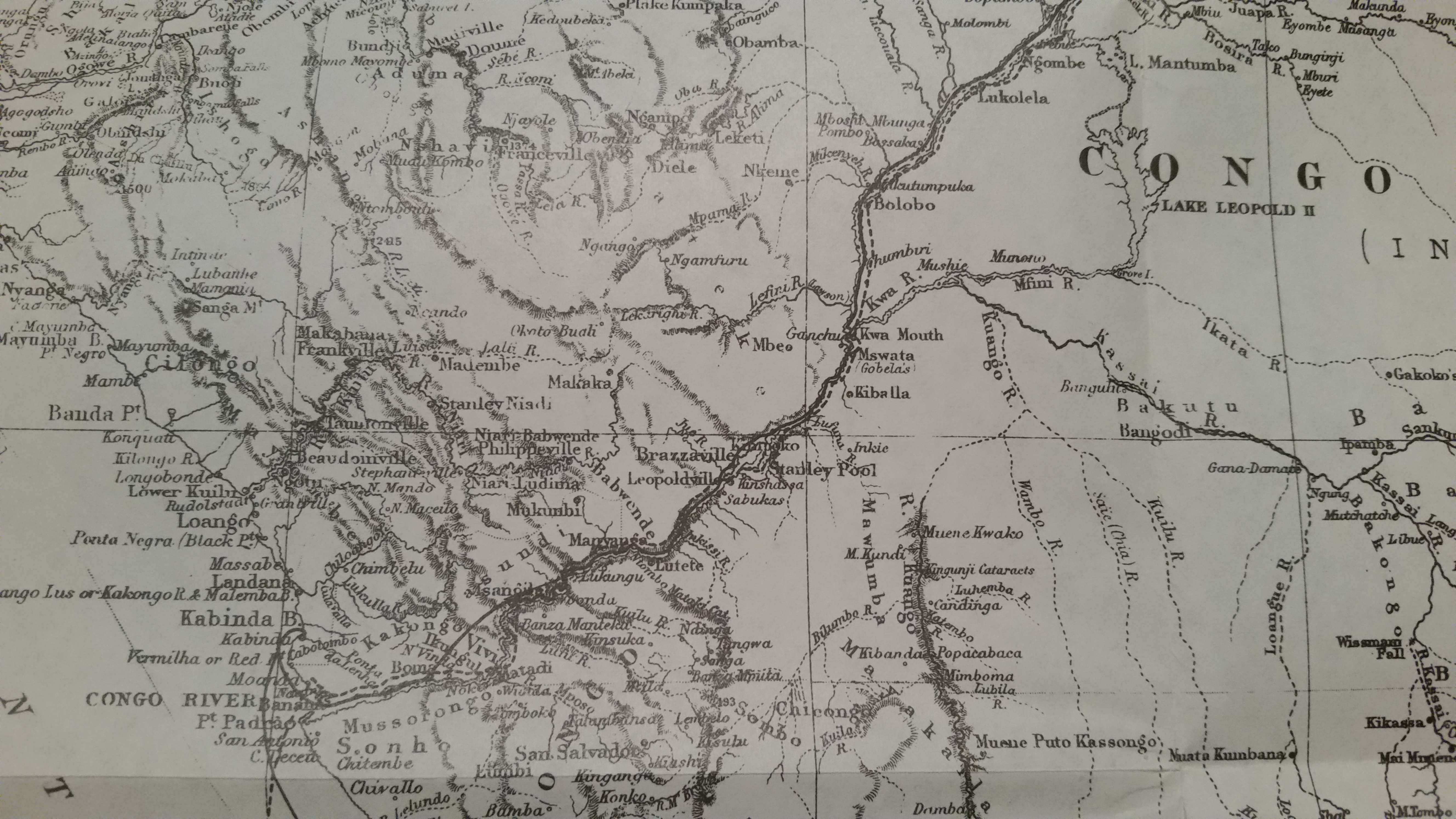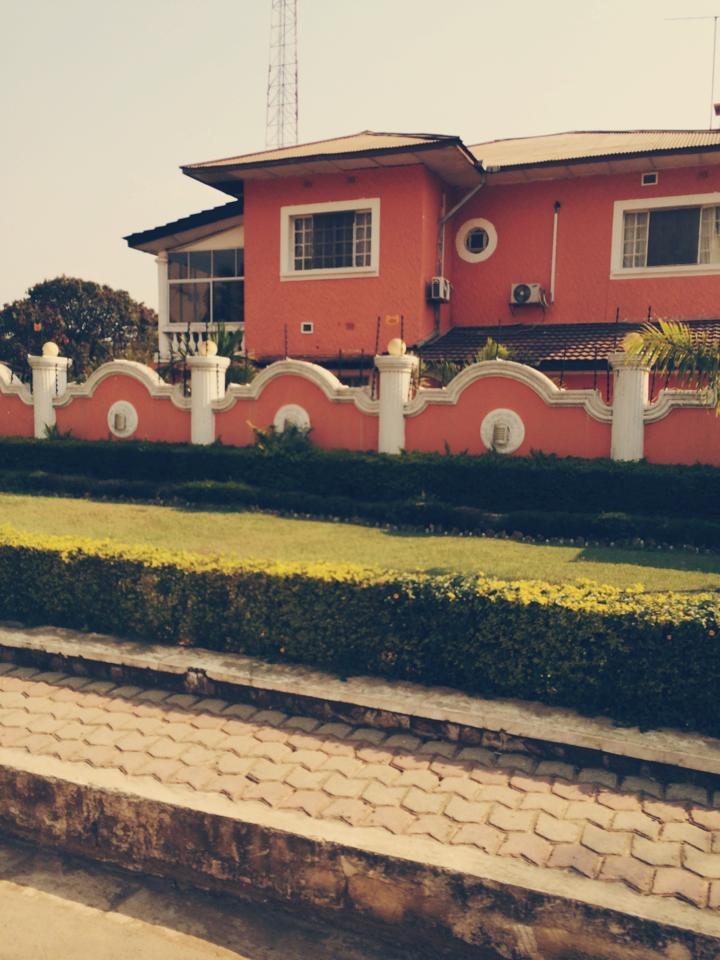|
Odon Jadot
Odon Jadot (13 April 1884 – 16 April 1968) was a Belgian railway engineer and administrator. He was responsible for building more than of railroad in the Belgian Congo. The lines helped carry copper mined in the Katanga Province to the sea via the ports of Matadi in the Congo, Dilolo in Angola and Beira, Mozambique, Beira in Mozambique. They also supported troop movements during World War I (1914–1918) and World War II (1939–1045). Family Odon Jadot was born on 13 April 1884 in Liège, Belgium. His parents were Odon Jadot (born 1850) and Adeline Leroy. His uncle Jean Baptiste Jadot (1839–1887) was father of Jean Jadot (banker), Jean Jadot and Lambert Jadot. Both of them later had distinguished careers as engineers and colonial businessmen. His aunt Christine Jadot (1841–1911) was mother of Alexis Bertrand (1870–1946), who became a senior colonial administrator in the Belgian Congo. Early career (1906–1914) Odon Jadot joined the army, studied at the School of Pra ... [...More Info...] [...Related Items...] OR: [Wikipedia] [Google] [Baidu] |
Liège
Liège ( , , ; wa, Lîdje ; nl, Luik ; german: Lüttich ) is a major city and municipality of Wallonia and the capital of the Belgian province of Liège. The city is situated in the valley of the Meuse, in the east of Belgium, not far from borders with the Netherlands ( Maastricht is about to the north) and with Germany (Aachen is about north-east). In Liège, the Meuse meets the river Ourthe. The city is part of the ''sillon industriel'', the former industrial backbone of Wallonia. It still is the principal economic and cultural centre of the region. The municipality consists of the following districts: Angleur, , Chênée, , Grivegnée, Jupille-sur-Meuse, Liège, Rocourt, and Wandre. In November 2012, Liège had 198,280 inhabitants. The metropolitan area, including the outer commuter zone, covers an area of 1,879 km2 (725 sq mi) and had a total population of 749,110 on 1 January 2008. [...More Info...] [...Related Items...] OR: [Wikipedia] [Google] [Baidu] |
Kabalo
Kabalo is a town in the Democratic Republic of the Congo. It is in Tanganyika Province, Tanganyika province on the Lualaba River and is the administrative center of Kabalo Territories of the Democratic Republic of the Congo, territory. Transport Kabalo is the junction of railway lines to the north and to Lake Tanganyika in the east. It is served by Kabalo Airport. See also * Railway stations in DRCongo External links A Trans-Africa Inland Waterway System?Democratic Republic of Congo Waterways Assessment References Populated places in Tanganyika Province {{DRCongo-geo-stub ... [...More Info...] [...Related Items...] OR: [Wikipedia] [Google] [Baidu] |
Lake Tanganyika
Lake Tanganyika () is an African Great Lake. It is the second-oldest freshwater lake in the world, the second-largest by volume, and the second-deepest, in all cases after Lake Baikal in Siberia. It is the world's longest freshwater lake. The lake is shared among four countries— Tanzania, the Democratic Republic of the Congo (DRC), Burundi, and Zambia, with Tanzania (46%) and DRC (40%) possessing the majority of the lake. It drains into the Congo River system and ultimately into the Atlantic Ocean. Etymology "Tanganika" was the name of the lake that Henry Morton Stanley encountered when he was at Ujiji in 1876. The name first originated from the Bembe language when they arrived in South Kivu around the 7th century, they discovered the lake and started calling it “êtanga ‘ya’ni’â” which means “a big river” in their Bantu language. Stanley found also other names for the lake among different ethnic groups, like the Kimana, the Yemba and the Msaga. An al ... [...More Info...] [...Related Items...] OR: [Wikipedia] [Google] [Baidu] |
Baron Dhanis WWI
Baron is a rank of nobility or title of honour, often hereditary, in various European countries, either current or historical. The female equivalent is baroness. Typically, the title denotes an aristocrat who ranks higher than a lord or knight, but lower than a viscount or count. Often, barons hold their fief – their lands and income – directly from the monarch. Barons are less often the vassals of other nobles. In many kingdoms, they were entitled to wear a smaller form of a crown called a ''coronet''. The term originates from the Latin term , via Old French. The use of the title ''baron'' came to England via the Norman Conquest of 1066, then the Normans brought the title to Scotland and Italy. It later spread to Scandinavia and Slavic lands. Etymology The word '' baron'' comes from the Old French , from a Late Latin "man; servant, soldier, mercenary" (so used in Salic law; Alemannic law has in the same sense). The scholar Isidore of Seville in the 7th century t ... [...More Info...] [...Related Items...] OR: [Wikipedia] [Google] [Baidu] |
Kasai River
The Kasai River ( ; called Cassai in Angola) is a tributary (left side) of the Congo River, located in Central Africa. The river begins in central Angola and flows to the east until it reaches the border between Angola and the Democratic Republic of the Congo, where it turns north and serves as the border until it flows into the DRC. From Ilebo, between the confluences with Lulua river and Sankuru river, the Kasai river turns to a westerly direction. The lower stretch of the river from the confluence with Fimi river, is known as the Kwa(h) River, before it joins the Congo at Kwamouth northeast of Kinshasa. The Kasai basin consists mainly of equatorial rainforest areas, which provide an agricultural land in a region noted for its infertile, sandy soil. It is a tributary of Congo river and diamonds are found in it. Around 60% of diamonds in Belgium go from Kasai river for cutting and shaping. Exploration Henry Morton Stanley reached the confluence on 9 March 1877, calling the ri ... [...More Info...] [...Related Items...] OR: [Wikipedia] [Google] [Baidu] |
Pool Malebo
The Pool Malebo, formerly Stanley Pool, also known as Mpumbu, Lake Nkunda or Lake Nkuna by local indigenous people in pre-colonial times, is a lake-like widening in the lower reaches of the Congo River."Malebo Pool" ''''. Accessed June 2011. The river serves as the border between the Republic of the Congo on the north and the to the south. The poo ... [...More Info...] [...Related Items...] OR: [Wikipedia] [Google] [Baidu] |
Kinshasa
Kinshasa (; ; ln, Kinsásá), formerly Léopoldville ( nl, Leopoldstad), is the Capital city, capital and List of cities in the Democratic Republic of the Congo, largest city of the Democratic Republic of the Congo. Once a site of fishing and trading villages situated along the Congo River, Kinshasa is now one of the world's fastest growing megacity, megacities. The city of Kinshasa is also one of the DRC's Provinces of the Democratic Republic of the Congo, 26 provinces. Because the administrative boundaries of the city-province cover a vast area, over 90 percent of the city-province's land is rural in nature, and the urban area occupies a small but expanding section on the western side. Kinshasa is Africa's third-largest metropolitan area after Cairo and Lagos. It is also the world's largest nominally Francophone urban area, with French being the language of government, education, media, public services and high-end commerce in the city, while Lingala is used as a ''lingua fr ... [...More Info...] [...Related Items...] OR: [Wikipedia] [Google] [Baidu] |
Southampton
Southampton () is a port City status in the United Kingdom, city in the ceremonial county of Hampshire in southern England. It is located approximately south-west of London and west of Portsmouth. The city forms part of the South Hampshire, South Hampshire built-up area, which also covers Portsmouth and the towns of Havant, Waterlooville, Eastleigh, Fareham and Gosport. A major port, and close to the New Forest, it lies at the northernmost point of Southampton Water, at the confluence of the River Test and River Itchen, Hampshire, Itchen, with the River Hamble joining to the south. Southampton is classified as a Medium-Port City . Southampton was the departure point for the and home to 500 of the people who perished on board. The Supermarine Spitfire, Spitfire was built in the city and Southampton has a strong association with the ''Mayflower'', being the departure point before the vessel was forced to return to Plymouth. In the past century, the city was one of Europe's mai ... [...More Info...] [...Related Items...] OR: [Wikipedia] [Google] [Baidu] |
Kambove Mines
The Kambove mines are a group of active or abandoned copper mines near Kambove in the Democratic Republic of the Congo. They were originally established by the Union Minière du Haut-Katanga under Belgian rule. Inactive mines in the region include Kabolela Mine, Kakanda deposit, Kambove Principal Mine and M'sesa Mine. Gécamines, a state-owned mining company, owns the Kamoya central, Kamoya south, Shangolowe and Kamfundwa mines. Other mines are Kambove West Mine and the "secret" Kamoya South II Mine. In January 2001 the Kababancola Mining Company (KMC) was established as a copper and cobalt mining partnership for a 25-year term. Tremalt, controlled by John Bredenkamp John Arnold Bredenkamp (11 August 1940 – 18 June 2020) was a Zimbabwean businessman and rugby union footballer. He was the founder of the Casalee Group. Early life Born in South Africa, Bredenkamp moved with his family to Southern Rhodesia wh ..., held 80% of KMC while Gecamines held 20%. KMC gained the rig ... [...More Info...] [...Related Items...] OR: [Wikipedia] [Google] [Baidu] |
Lubumbashi
Lubumbashi (former names: (French), ( Dutch)) is the second-largest city in the Democratic Republic of the Congo, located in the country's southeasternmost part, along the border with Zambia. The capital and principal city of the Haut-Katanga Province, Lubumbashi is the center of mining in the region, acting as a hub for many of the country's largest mining companies. No definite population figures are available, but the population of the city's urban area is estimated to be around 2,584,000 in 2021. History Élisabethville under Belgian rule The Belgian government established the modern-day government in the city of ''Élisabethville'' (sometimes Elizabethville, both in French, or Elisabethstad in Dutch) in 1910, named in honour of Queen Elisabeth, consort to King Albert I of the Belgians. By that time, the government had taken over the colony from King Leopold II, and renamed it as the Belgian Congo. This site was chosen by Vice-Governor-General Emile Wangermée becau ... [...More Info...] [...Related Items...] OR: [Wikipedia] [Google] [Baidu] |
Etoile Mine
The Etoile Mine (also known as L'Etoile du Congo Mine, Kalukuluku, or Star of the Congo Mine) is an open-pit copper mine on the outskirts of Lubumbashi in Katanga Province of the Democratic Republic of the Congo (DRC). Chemaf (Chemical of Africa) owns the license. Chemaf is 95% owned by Shalina Resources and 5% by the DRC government. Location The Etoile mine is located at an elevation of about above sea level. The climate is sub-tropical, with annual rainfall of about falling mostly in the October to March period. Average temperatures are between and , with no marked difference between summer and winter. The region lies in a zone that would naturally be covered by Miombo Woodland, deciduous tropical woodlands. Lying on the edge of Lubumbashi, much of the woodland has been cleared. The Etoile orebody lies within the copperbelt that stretches from Luanshya in Zambia to Kolwezi in the DRC. As with many of the deposits in southern Katanga, it is a stratiform copper-cobalt deposit. ... [...More Info...] [...Related Items...] OR: [Wikipedia] [Google] [Baidu] |








